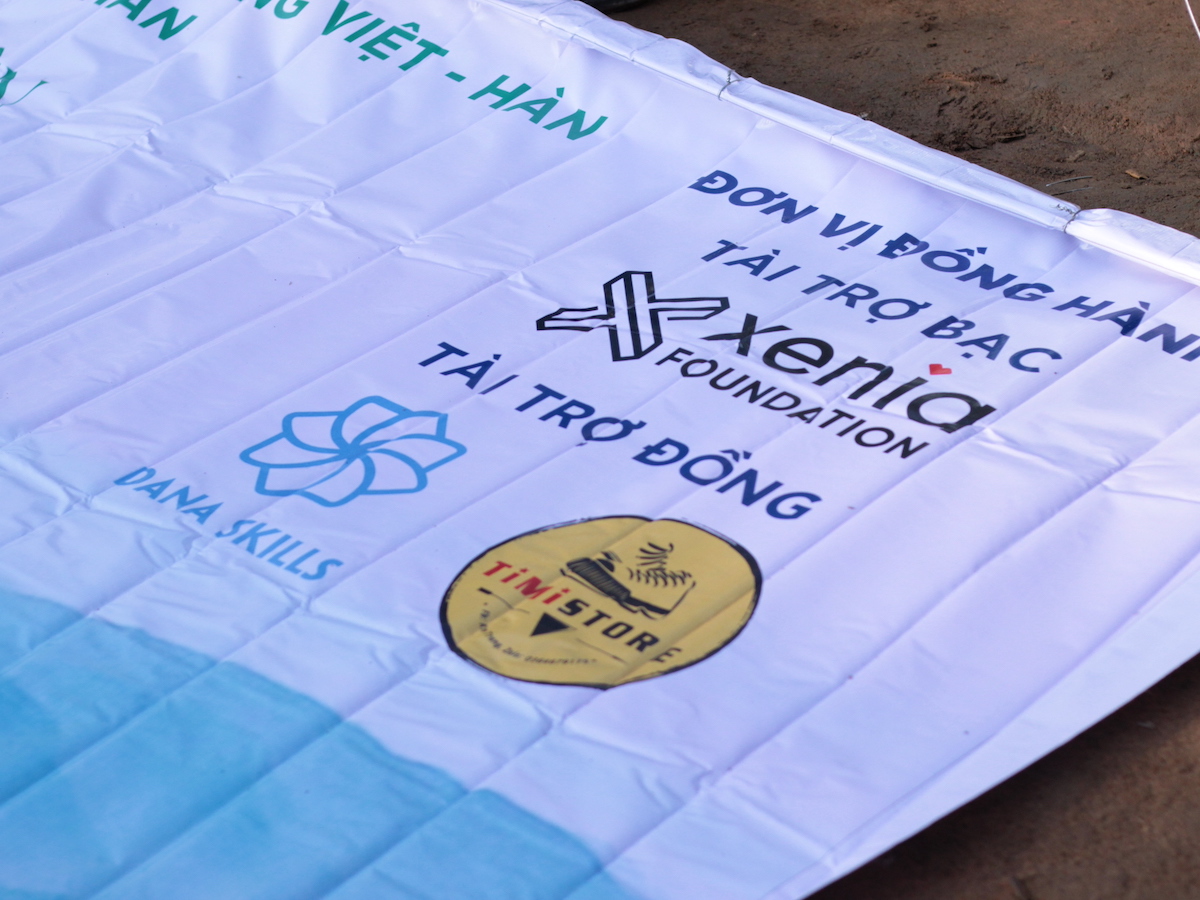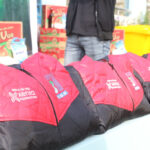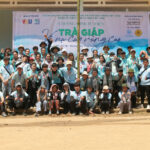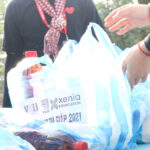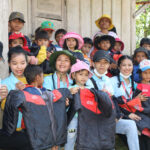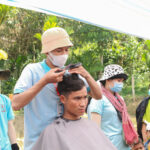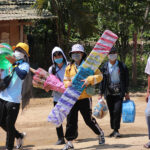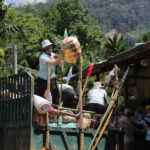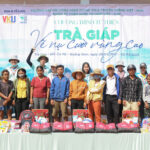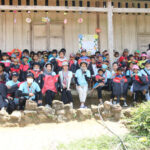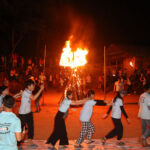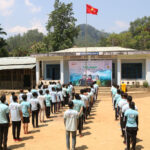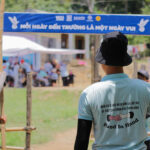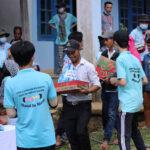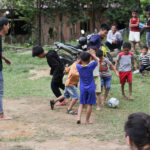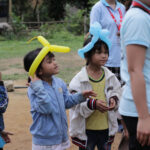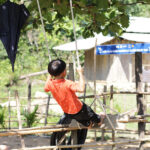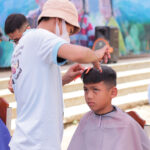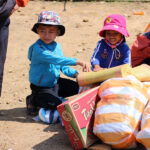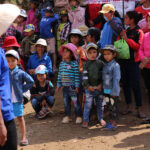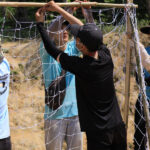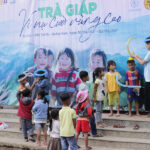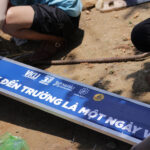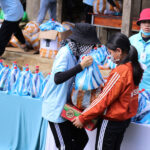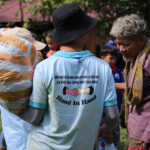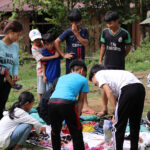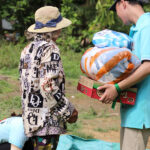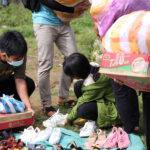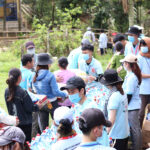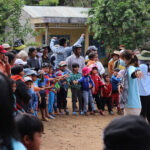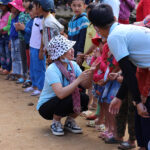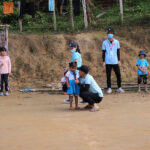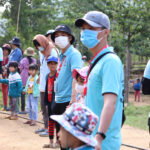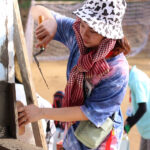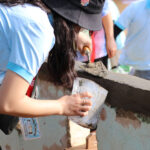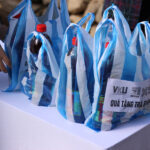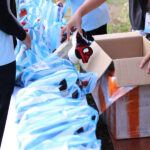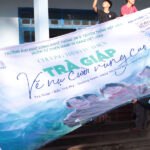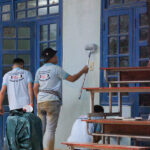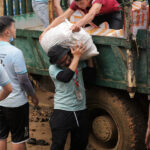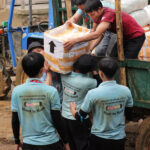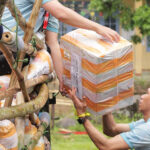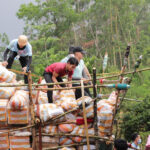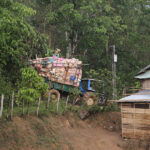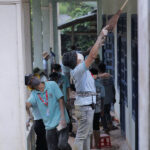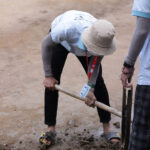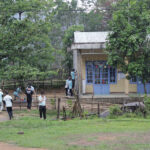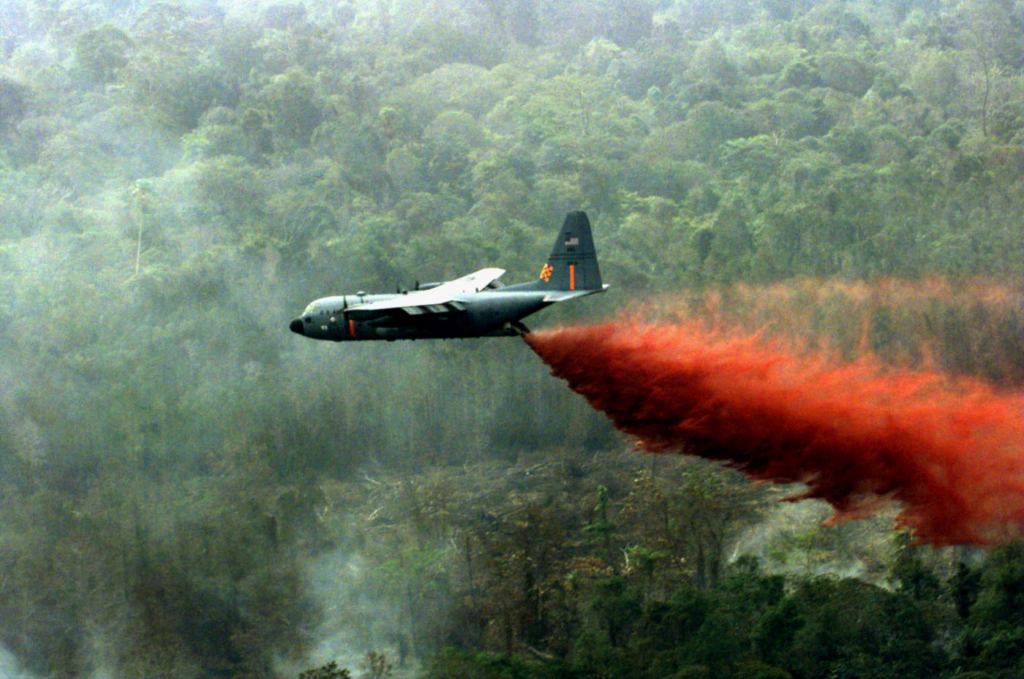Central Vietnam’s Tra Giap Community had even more reason to celebrate over the long reunification and labor day weekend this year. During the annual holiday, the rural commune was graced with generous donations from the Korean charity group Hand-in-Hand Vietnam. Despite increased precautions and safety concerns from the latest COVID-19 outbreak, the organization from Da Nang’s Vietnam Han University of Information and Computer Technology donated more than 50 million VND ($2,150 USD), as well as countless recreational and community-building goods and services to the locality.
The village is situated in Bac Tra My, some 150 kilometers from Da Nang in central Vietnam, an area of the country that was heavily affected by last year’s onslaught of tropical storms and cyclones. The unusually active monsoon season brought with it record-setting floods, wind, storm surges, and landslides that inundated rural areas of central Vietnam and caused five times more deaths last year than did the pandemic. Tra Giap was chosen by the organization due in large part to the severe damage caused by the unexpected wave of extreme weather - for which they’re still dealing with the consequences.
BUILDING SUSTAINABLE FUTURES FOR THOSE WHO NEED IT MOST
Xenia Foundation
In October of 2020, the Vietnamese government released a call for relief after several powerful storms struck the region, spurring international donations from the United States, the United Kingdom, Australia, the Netherlands, and Japan. According to the United Nations, the storms displaced 90,000 people and affected nearly eight million, causing over 30 trillion VND ($1.9 billion USD) in damage across nine central provinces including; Nghe An, Ha Tinh, Quang Binh, Quang Tri, Thuan Thien, Hue, Quang Nam, Kon Tum, Quang Ngai, and Binh Dinh, all of which are situated on the East Sea.
The country’s geography places it in a monsoon trough, an area where tropical disturbances are more common than in surrounding regions. In addition, Vietnam boasts southeast Asia’s second-longest coastline (after the Philippines), which makes population clusters more susceptible to the effects of cyclones and climate change. Its 3,260 kilometer-long coastline stretches from the Chinese border in the north to the Gulf of Thailand in the south. The country’s relatively small width means powerful tropical storms can have massive impacts on citizens both directly and indirectly, as transportation and supply chains can be easily disrupted. As much of Vietnam is considered rural, the livelihood of those living outside urban centers can be disproportionately affected by severe weather. Such is the case in the Tra Giap community.
Last year’s storms brought with them not only damaging floods but also landslides. The mass displacement of the earth leads to unusable farmland and low crop yields, creating more economic headaches long after flood waters had receded in the region, which is still suffering from a lack of tourism due to restrictions put in place due to the coronavirus.
Hand-in-Hand Vietnam aimed to help the area bounce back and rebuild from the devastation.
The student-led organization spent several weeks preparing and arranging donations to help restore normality to the heavily affected area, which in some places still lacks electricity and clean water. Organizers collected bottles, sold breakfast foods, amassed donated clothing, and held fundraising performances in Ho Chi Minh City, Da Nang, and Quang Nam for over three months in preparation for the long weekend, which took place from 30 April to 1 May this year.
With careful oversight from local authorities and safety measures in place to help prevent possible transmission of the coronavirus, the group of nearly 70 organizers held ‘A Weekend of Love’ for the village, including musical performances with traditional folk songs, a flower market, and hand donations of cash, instant noodles, shoes, school supplies, and clothing. The group also provided entertainment in the form of games, sports, and traditional activities for area school children. Local businesses also contributed to the fundraiser to help provide the village with a truly uplifting and memorable experience.
Over the course of the three-day event, Hand-in-Hand Vietnam also improved the infrastructure of Ban Tru Ethnic Minority School in the village. The group took measures to update lighting and electrical systems, as well as focused on making the school more aesthetically pleasing by repainting walls, creating murals, planting flowers, and repairing general wear and tear. The initiative was meant to create a better learning environment for students to grow and prosper in the wake of the storms’ lasting havoc. Reports indicate that of the millions affected by the storms, 2.4 million were children.
The event took place during the first weekend in May, which is coincidentally the informal start of the rainy season in Vietnam’s Mekong Delta region that includes Ho Chi Minh City. Central Vietnam and the surrounding area generally experience the bulk of the year’s precipitation from September to December, but as heavy rains begin to fall elsewhere around the country, 2020’s typhoon season is still fresh in the memory of locals. Another year of intense storms would only result in setbacks to progress already made.
However, efforts to restore the area are not in vain. The organization contributed cash and goods to over 260 households and 70 students over the course of the weekend, providing indispensable hope and assistance to affected locals, many of whom were forced to use makeshift canoes rather than motorbikes just eight short months ago.
Still, the region has a long way to go. While charitable and non-government organizations (NGOs) provide crucial aid and assistance, infrastructure repairs remain a top priority. Plans have been put in place to secure the health of affected populations with added focus on providing clean water, sanitation, and hygiene while taking into consideration protocols to protect citizens from the ongoing pandemic.
As such, Hand-in-Hand Vietnam also hosted medical training workshops, including best practices for mask-wearing, sanitization, and making medical declarations.
The Weekend of Love brought with it a renewed sense of hope for the village while demonstrating firsthand the positive effects of community rebuilding and philanthropy in the wake of repeating natural disasters.
Spreading love to the local community
The Xenia Foundation is a non-governmental organisation that focuses on supporting those less fortunate in the Vietnamese community through education and financial support. Partnered with Xenia Tech Co., LTD (a Vietnamese company - no. 0401939686), The Xenia Foundation will provide valuable support for the local community in three core areas:
- BUILDING SUSTAINABLE FUTURES FOR THOSE WHO NEED IT MOST
- IT EDUCATION AND MENTORING
- FINANCIAL SUPPORT FOR CHILDREN TO GET AN EDUCATION
- DISASTER RELIEF SUPPORT
Primary funding for the Xenia Foundation will come from donations. Xenia Tech has vowed to donate 5% of their net profit on a monthly basis to the Foundation. The Xenia Foundation will also receive donations from individuals and organisations alike.

